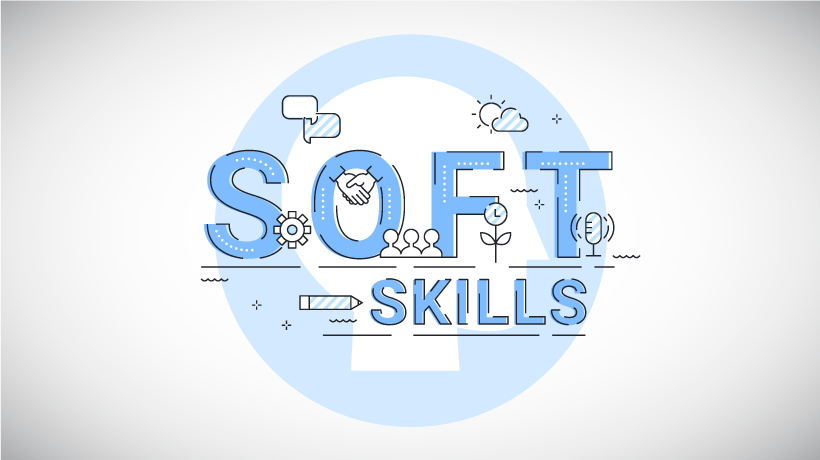Soft Skills Training For Employees
eLearning is a great way to train employees on soft skills. With courses that are designed to fit all learning styles, companies can find a variety of options that fit their needs. All of the eLearning elements, such as microlearning, video, and mobile responsiveness, are awesome ways to deliver soft skills training that is not only convenient but relevant. Offering "on-the-job" eLearning courses is a great method to measure learning and help learners do their jobs better. In this article, we are going to discuss the top soft skills that employees need and why they are important to be learned and offered to employees and managers.
1. Communication
No matter where you work or what job you have, communication matters. We need to communicate with leaders, co-workers, vendors, as well as customers. We are always in constant communication with others. When we take the time to strengthen our communication skills, we become more effective at work, we get more things done, and people enjoy working with us. All these make for a great and rewarding work situation. While everyone has a different way of communicating, it is important to be able to hold an important conversation with someone and adapt to different communication styles.
2. Teamwork
Teamwork matters. When a team is cohesive and works well together, individuals are more engaged, more productive, and more satisfied at work. A great team environment benefits everyone. As a leader, you can have a significant impact on the level of teamwork your team experiences. Taking the right actions and creating the right expectations matters. Strengthening teamwork skills will help the employees' ability to work with others, which will strengthen the level of teamwork. Teamwork can tie back into communication because you will most likely have employees who are extremely introverted and don't want to take part in a team. This is where training will be important for these employees as they can learn the skills to communicate and be great team players.
3. Conflict Management
Per HRDive.com, conflict management is the soft skill most in-demand among businesses hiring in 2019, as online learning platform Udemy revealed in a new report. Conflict will arise; it’s inevitable. Therefore, knowing how to handle conflict is essential. Building skills to strengthen conflict management within the team is important because you’ll find that your team works better with others, is able to deliver great results in a timely manner, and is not frustrated in a challenging work environment. Instead, team members enjoy being part of a cohesive and productive team.
4. Contribution
Everyone wants to do well at work. When employees perform well, contribute at a high level, and are seen as a valuable asset to the team, they enjoy work more and have more opportunities. And while a manager typically determines the work that must be accomplished and when, individual employees can also greatly impact work and the level of the contribution achieved. By staying productive, creating accountability, and increasing personal success, employees can take control of their own work situation and drive personal success.
5. Personal Behavior
Character, integrity, and personal conduct are important in business and in your personal life. How employees conduct themselves with others makes a difference in their overall ability to succeed. Employees who show strong character and integrity develop a high level of trust and respect with others, are seen as leaders and are looked to as an important part of the organization. When employees strengthen their personal behavior and conduct, managers will certainly see a benefit.
6. Emotional Intelligence
According to nationalsoftskills.org, emotional intelligence is the learned ability to identify, experience, understand, and express human emotions in healthy and productive ways. What makes emotional intelligence important is being able to use your emotions in the appropriate situation, for example, being able to defuse conflict and not let your emotions get in the way of effectively handling a situation. When you have emotional intelligence, it helps in working with teams and being able to communicate better with co-workers.
Don’t miss the boat on soft skills training for employees. They are just as important as hard skills—in fact, they could be more important. According to HRDive.com, employment experts say that soft skills are becoming harder to find, making the skills gap a greater challenge for employers in 2020. Organizations might need to invest in soft skills training in much the same way many will need to invest in technical skills training to prepare for the future of work.

